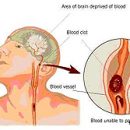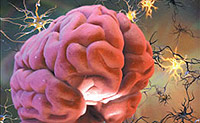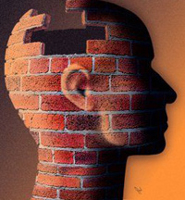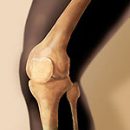Perhaps there is no such person who would not hear about epilepsy. About 40 million people are affected by this illness. What is the reason for this disease? This will come about the conversation in this article.
Content
Why not
Jack epilepsy attacks?
With sufficiently strong effects, epileptic activity, as one of the methods of the reaction of the cells of the brain, may appear at any person. However, U «Healthy» People for this need a strong impact quite strong - for example, alcohol abstinence or severe skull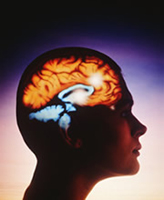 O-brain injury.
O-brain injury.
In young children, the ability of brain cells to react with excessive excitement to an irritating factor is expressed to a greater extent than in adults, so at high temperatures they can develop an epileptic attack.
Approximately 1-2% of people have the activity of brain cells so large that epileptic attacks arise by themselves, without visible reasons. Depending on what age attacks appeared, you should assume certain reasons.
If the attacks appeared up to 20 years, then the reason for the brain may be due to pregnancy and childbirth, than for example - brain tumor.
It was established that the cause of focal attacks (those who capture not the whole brain, but only some of its sections) is much more often a primary violation of the function of one or several parts of the brain than with generalized. However, with any attacks, it is necessary to carry out a thorough examination and determine the cause of their causing.
Complications during pregnancy
Perinatal complications are the main cause of cramps in children. Injuries - both generic and prenatal - cause brain hypoxia (oxygen starvation of the brain). In fact, the majority of congenital brain disorders are associated with its oxygen starvation. Fortunately, as a result of improving obstetric technology, the risk of such complications is reduced. However, some experts believe that 20% of cases of epilepsy fall under this category.
Another 5-10% of cases of epilepsy are a consequence of head injury. As a result of a strong injury, ill-treatment of children, firearm, accident post-traumatic epilepsy may follow the injury of the brain. Post-traumatic cramps sometimes develop immediately after injury, and sometimes appear in a few years.
Experts believe that everyone who has suffered a brain injury, which led to a long loss of consciousness, have an increased probability of epilepsy. Epilepsy very rarely occurs after insignificant head injuries. Meanwhile, all parents know that drops and bruises are the same integral part of growth as childhood diseases, so there is no need to live in a constant fear that the child can stumble.
It should be understood that not every epileptic attack is caused by a drop. However, it should be borne in mind that children are very wounded. Even a strong tendering of a child, especially the baby, is able to harm his mental and physical health and lead to epileptic bosses or mental retardation.
If your child has cramps at once or a few hours after injury, you can calm the fact that such attacks are repeated rarely. However, the attacks developed in a few months or years after damage to the brain, repeated much more often. Post-traumatic attacks are slower than all in children. They may occur even 25 years after injury.
Repeated epileptic attacks are observed in many diseases, including children's cerebral paralysis. In this case, the alone and the same brain injury provokes and convulsions and a concomitant disease. Cancer, affecting the brain, infection of the central nervous system of type meningitis and encephalitis, can also cause repeated seizures. Vascular diseases are also frequent cause of epilepsy epileptic attacks. Sometimes convulsions are the first sign of the systemic red lupus (approximately 15% of patients).
Brain tumors
About 35% of brain tumors provoke repeated epileptic attacks. However, the brain tumors themselves cause less than 15% of all attacks. Most people with epilepsy have no visible brain anomalies. Arteriovenous dysplasia (incorrect development) of brain vessels - a congenital defect, usually leading to re-cramps. Unfortunately, operational intervention in this case can provoke epileptic cramps.
Metabolic disease
Epilepsy may cause both hereditary metabolic disorders and acquired, for example, lead poisoning. These are the reasons for 10% of epilepsy. Eating rich in calories (carbohydrates, fats) may affect metabolism and provoke convulsive attacks for almost everyone. Even if a person does not suffer with diabetes, with a significant increase Sugar level in his blood, he may have an epileptic attack. Attacks can also accompany the diseases of the kidneys and liver.
Sugar level in his blood, he may have an epileptic attack. Attacks can also accompany the diseases of the kidneys and liver.
Genetic factors affect the individual convulsion threshold. If due to the metabolic disorder, the attacks are repeated, epilepsy may be diagnosed, although such manifestations often disappear during the successful treatment of the underlying disease.
In the stroke, the brain circulation is disturbed, as a result of which short-term or long-term disorders of speech, thinking and movement (depending on which parts of the brain are amazed). Perhaps due to an increase in the number of older people in this age group, it became more common to meet epilepsy. Usually strokes do not cause epileptic seizures - only 4-5% of patients develop chronic attacks. Attacks that are a consequence of stroke are usually well-treatment with anti-epileptic drugs. The passage of reception of the dose of the anti-epileptic drug imposed to you is also able to provoke an attack.
It should be borne in mind that convulsive attacks arise not only in drug abuse. In individuals with a low threshold, they can cause severe neuroleptics. For example, aminazine, three-cyclic antidepressants (type of amitriptylin) and monasdase inhibitors (Niamid and DR.), amidopin, preparations of the penicillin group. Sometimes the interaction of anti-epileptic drugs with other medicines also provokes an attack.
If one of the parents is epilepsy, then the likelihood of her children's appearance is about 6%. If epilepsy in both parents, the risk for the child increases to 10-12%. The most frequently found epilepsy in the child, if the parents have epileptic attacks have no focal, and generalized character.
It should be borne in mind that the peculiarities of the brain, the processes of initiation and braking, increased readiness for the convulsive forms of the brain response to the change in internal and external factors, and not epilepsy itself. In most cases, epilepsy in children is manifested much earlier than parents. For example, if the mother has epileptic attacks started from 15 years, then her child can appear, for example, in 5 years. The epilepsy of a child is not a sentence, cure a child possible with the right approach from parents and, of course, a specialist.
This applies to the case when there is no reason to assume the primary brain disease. To this group, except for generalized attacks, there are convulsive seizures of puberty period, generalized nightly convulsive attacks, and some other forms of epilepsy. Another name of spontaneous epilepsy - idiopathic.
About spontaneous epilepsy they say that it is not possible to identify the cause of the attacks despite the special neurological examination (EEG, CT, NMR), since there are no obvious or alleged signs of the main brain disease. With such epilepsy, we seem to be dealing with not yet studied chemical changes in the brain.

